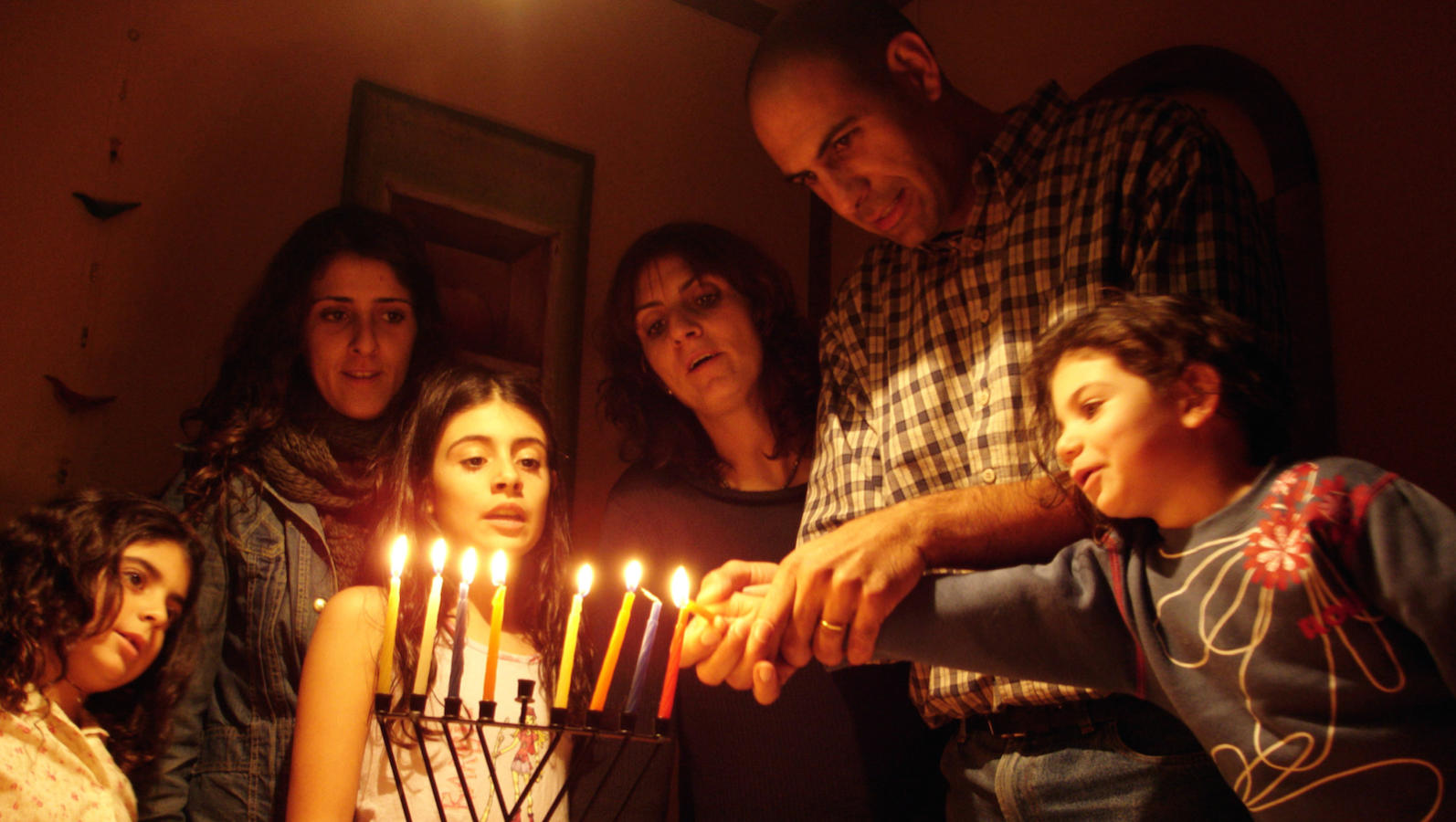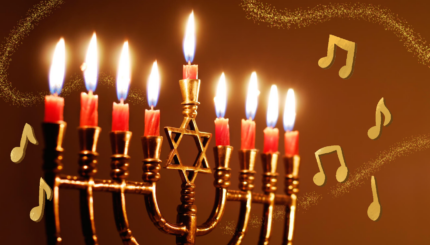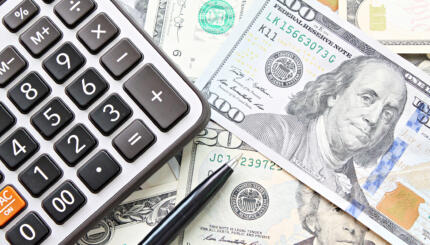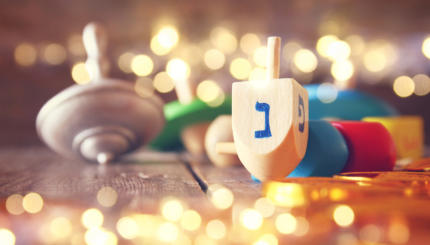Haneirot Hallalu — literally “These Candles” — is sung after the Hanukkah candle-lighting. The song declares that the candles are holy and that their sole purpose is to commemorate the events of Hanukkah. Unlike the Shabbat candles, they may not be used as a source of light.
The halachic [Jewish legal] warning “Haneirot Hallalu” is derived from the late Talmudic Tractate Soferim. The point is to warn the family not to use the light of these 36 Hanukkah candles (lit over eight days, not counting the shamash, or helper candle).
In fact, some versions of this section include exactly 36 words after the opening phrase: “Haneirot Hallalu,” which can be understood playfully as “these candles are LU [or rather, the Hebrew letters lamed and vav] = 30 + 6.” The Hebrew and Greek letters function also as numbers, so words can be translated into numbers using a system called “gematria.”
With your help, My Jewish Learning can provide endless opportunities for learning, connection and discovery.
The holiness of the candles derives from their being dedicated to recalling the divine miracle of rescue from the Greeks and the lighting of the Temple menorah at the original rededication of the Temple by the Maccabees. Unlike Shabbat candles, which are meant to light up the meal at the table and to create a peaceful, sociable atmosphere, Hanukkah candles are placed at the doorway or windowsill as symbols for passersby.
Since this is their purpose, unlike other lamps in the house, their light may not be used. As the Shulchan Aruch [the standard code of Jewish law] rules: “One may not use the Hanukkah candle even for another holy task like studying Torah [or making Havdalah on the Saturday evening during Hanukkah]. However, some rabbis [from Provence, France] permit secondary holy uses.”
Reprinted with permission from A Different Light: The Hanukkah Book of Celebration published by the Shalom Hartman Institute and Devora Publishing.
Explore Hanukkah’s history, global traditions, food and more with My Jewish Learning’s “All About Hanukkah” email series. Sign up to take a journey through Hanukkah and go deeper into the Festival of Lights.
Hanukkah
Pronounced: KHAH-nuh-kah, also ha-new-KAH, an eight-day festival commemorating the Maccabees' victory over the Greeks and subsequent rededication of the temple. Falls in the Hebrew month of Kislev, which usually corresponds with December.
menorah
Pronounced: muh-NOHR-uh, Origin: Hebrew, a lamp or candelabra, often used to refer to the Hanukkah menorah, or Hanukkiah.
Shabbat
Pronounced: shuh-BAHT or shah-BAHT, Origin: Hebrew, the Sabbath, from sundown Friday to sundown Saturday.
Torah
Pronunced: TORE-uh, Origin: Hebrew, the Five Books of Moses.
halachic
Pronounced: huh-LAKH-ic, Origin: Hebrew, according to Jewish law, complying with Jewish law.
Havdalah
Pronounced: hahv-DAHL-uh, Origin: Hebrew, From the root for "to separate," the ceremony marking the end of Shabbat and the beginning of the week.



